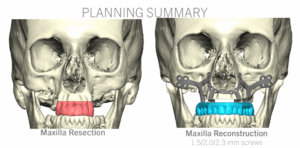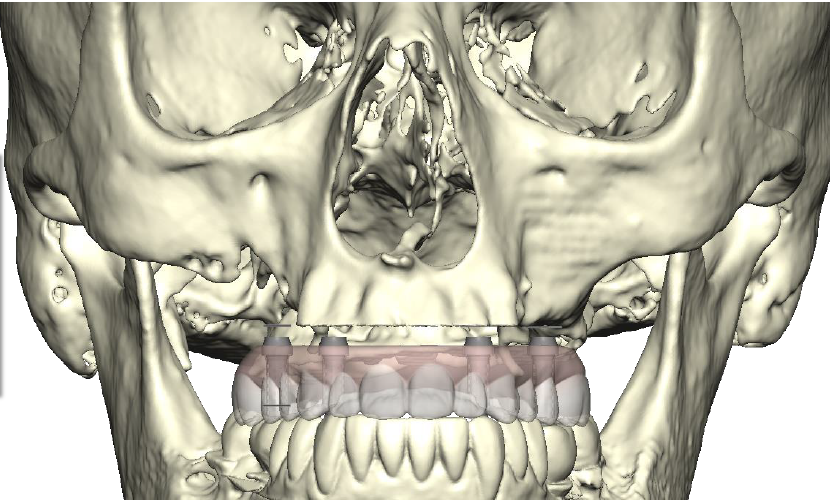When Deborah Sofranko, of South Fayette, PA, saw white patches on her upper gum, little did she know that the eventual diagnosis of squamous cell carcinoma of the maxilla would result in her being the first person in Pittsburgh to have a preprosthetic procedure to replace her teeth.
Deborah’s journey began when she saw an oral surgeon about her white patches. The doctor told her it was an autoimmune disease. Later, she saw a different oral surgeon, who asked if they had ever been biopsied. When Deborah said no, the surgeon was concerned and sent her to Pitt Dental School. The biopsy done there confirmed her diagnosis.
The dental school then referred Deborah to Dr. Matthew Spector, MD, FACS, Division Chief, Head & Neck Surgical Oncology & Microvascular Reconstruction. When they first met, Dr. Spector told her, “I want you to know we’re going to be best friends for the rest of your life.”
Deborah’s first surgery was in May 2024. “We initially reconstructed her with a radial forearm free flap,” Dr. Spector said. She did “extremely well” and did not need adjuvant therapy.
Due to problems she had over the years, Deborah only had six front teeth. Prior to her surgery, she wore a bridge, but the flap on the roof of her mouth precluded her from wearing it after surgery. At an appointment with Dr. Spector, Deborah’s daughter said, “My mom can’t eat. She’s trying to eat with six teeth. Is there any way some device could be made not to cover the roof of her mouth, but to give her teeth on at least one side?”

Dr. Spector referred Deborah to the University of Pittsburgh’s oral maxillofacial surgery team and Dr. Daniel Hawkins, DMD, FACS. Together, they came up with a plan for her to get an individualized patient solution, an IPS titanium plate implant. It involves placing a plate that already has dental implants in place. The procedure is more popular in Europe but is now being used more commonly in the U.S.
“We met with the engineers at KLS Martin to help us build these prosthetics,” Dr. Spector recalled. “They provided the plate with attached implants for the teeth. We then brought Deborah to the operating room in April 2025 and performed her surgery. She has done very well and has been very excited to use this new technology.”
Deborah’s temporary denture will be permanently replaced in October, as everything has to heal for six months after surgery. In the meantime, she is enjoying eating in restaurants and being social again for the first time in a long time.
“I feel really grateful there was a solution and that I had two very good surgeons who made sure everything was done to perfection,” Deborah said. “If anyone is considering it, definitely have it done. It’s not as scary as I thought it would be, and the benefits outweighed any issues I had along the way.”
